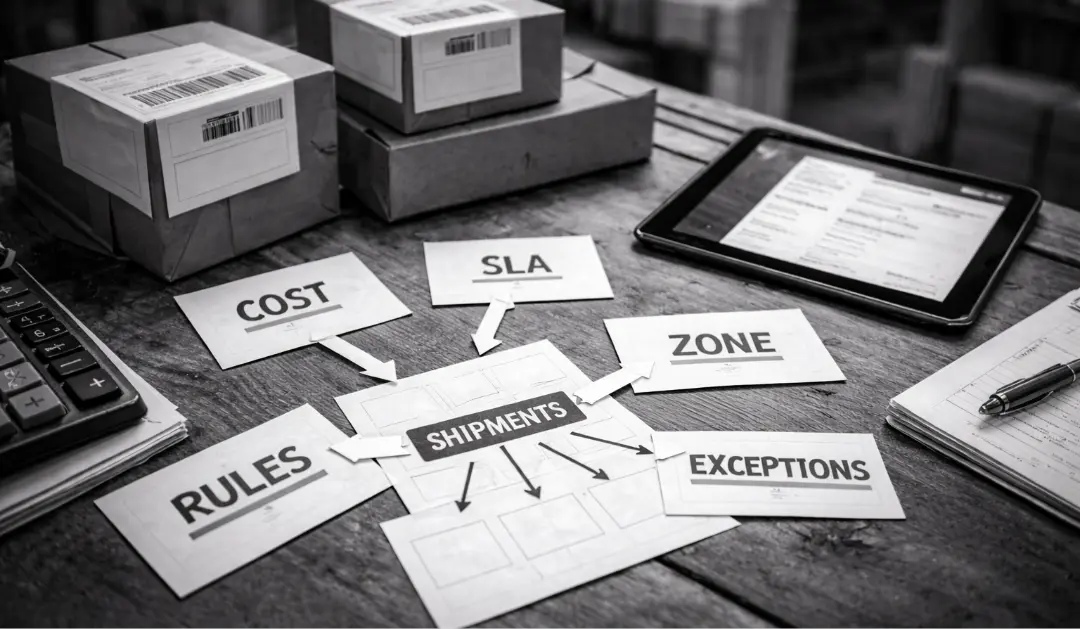Introduction
If you’re in the supply chain industry, you know that 3PLs (third-party logistics providers) play a crucial role in ensuring that products reach customers efficiently. As a 3PL handling fulfillment for e-commerce brands, selecting the right fulfillment software is a critical decision that can significantly impact your operations. In this guide, we’ll break down the essential factors to consider simply, helping you navigate the sea of options and choose the best fulfillment software for your business.
Understanding Your Needs
Before exploring fulfillment software, consider your specific needs. Consider the volume of orders you handle, the complexity of your inventory, and any unique challenges your business faces.
1. Order Processing:
Assess the efficiency of order processing features. Look for software that streamlines the entire order journey, from entry to fulfillment. It should also be user-friendly for your team to process orders quickly.
2. Inventory Management:
– Prioritize real-time inventory tracking. Ensure the software provides visibility into stock levels across multiple channels and locations. This feature prevents overstocks and stockouts and keeps your inventory in check.
3. Integration with Sales Channels:
– Evaluate how well the software integrates with your existing sales channels. Seamless integration is critical to avoiding discrepancies in the order information and inventory levels.
4. Scalability:
– Consider your growth trajectory. Opt for software that scales with your business, accommodating increased order volumes without compromising efficiency.
5. User-Friendly Interface:
– Look for a user-friendly interface that simplifies navigation. A straightforward design ensures quick adoption by your team without extensive training.
Assessing Integration
The success of your fulfillment process relies on how well your software integrates with other systems and platforms.
1. Compatibility:
– Ensure the fulfillment software integrates with your e-commerce platform, accounting software, and other relevant tools. Compatibility minimizes manual data entry and reduces errors.
2. Multi-Channel Support:
– If you serve multiple sales channels, choose software that supports multi-channel operations. This ensures consistency and accuracy in order processing across all platforms.
3. Ease of Integration:
Assess the ease of integration. The process should be smooth and not require complex configurations or extensive technical expertise.
Evaluating Budget Considerations
While the benefits of fulfillment software are substantial, staying within your budgetary constraints is essential.
1. Upfront Costs:
– Consider any upfront costs associated with purchasing and implementing the software. Evaluate whether these costs align with your budget.
2. Subscription Fees:
– Understand the subscription or licensing fees. Ensure that the ongoing costs are reasonable and provide value in terms of the features and support offered.
3. Cost vs. Value:
Compare the costs against the value the software delivers. A higher upfront cost may be justified if the software offers robust features that contribute to long-term efficiency and growth.
Exploring User Support
Prompt and reliable support is crucial for resolving issues and ensuring smooth operations.
1. Customer Support:
– Evaluate the level of customer support provided by the software vendor. Quick and helpful customer support can save time and prevent disruptions in your fulfillment process.
2. Training Resources:
– Check for available training resources. A software vendor that offers comprehensive training materials and documentation facilitates a smoother onboarding process for your team.
Considering Customization Options
Every 3PL business is unique, and the fulfillment software should be flexible enough to adapt to your specific requirements.
1. Customization Features:
Assess the software’s customization options. Tailoring the software to match your business processes enhances its effectiveness in meeting your needs.
2. Adaptability:
– Choose software that can adapt to changes in your business environment. This adaptability ensures that the software remains relevant as your business evolves.
Examining Security and Compliance
With the increasing emphasis on data security, choosing fulfillment software that prioritizes protecting sensitive information is crucial.
1. Data Security:
Check the software’s security features. Ensure that it employs robust measures to safeguard customer and business data from unauthorized access.
2. Regulatory Compliance:
– Verify that the software complies with relevant data protection regulations. Meeting regulatory standards is essential for maintaining trust with your clients.

Exploring Reviews and Recommendations
Learn from the experiences of others in the industry to make an informed decision.
1. Online Reviews:
– Read online reviews from other 3PLs in similar industries. Pay attention to feedback on ease of use, reliability, and the overall experience with the software.
2. Industry Recommendations:
– Seek recommendations from industry peers or participate in online forums where logistics professionals share insights. Recommendations from those with firsthand experience can be invaluable.
Planning for Future Requirements
Choose fulfillment software that meets your current needs and accommodates future growth.
1. Scalability:
Revisit the software’s scalability. Ensure it can handle the increased demands of your growing business without compromising performance.
2. Flexibility:
Consider the software’s flexibility to adapt to emerging technologies and industry trends. A forward-thinking solution ensures you stay ahead of the curve.
Conclusion
Selecting the right fulfillment software for your 3PL e-commerce business is a strategic decision that requires careful consideration. By understanding your specific needs, assessing integration capabilities, staying within budget constraints, exploring user support options, and considering factors like customization, security, and scalability, you can make an informed choice that enhances the efficiency and success of your order fulfillment process. Remember to leverage reviews and recommendations from industry peers and plan for future requirements to ensure a long-lasting and beneficial investment for your business.




